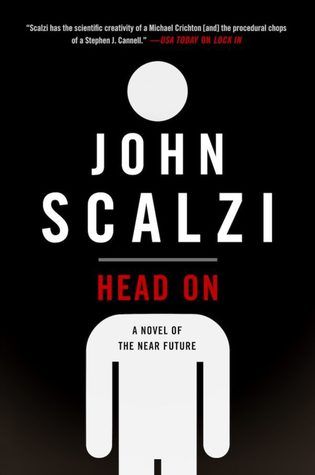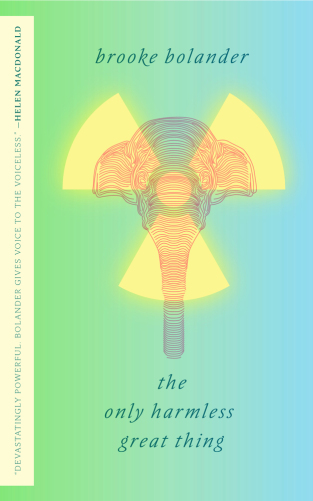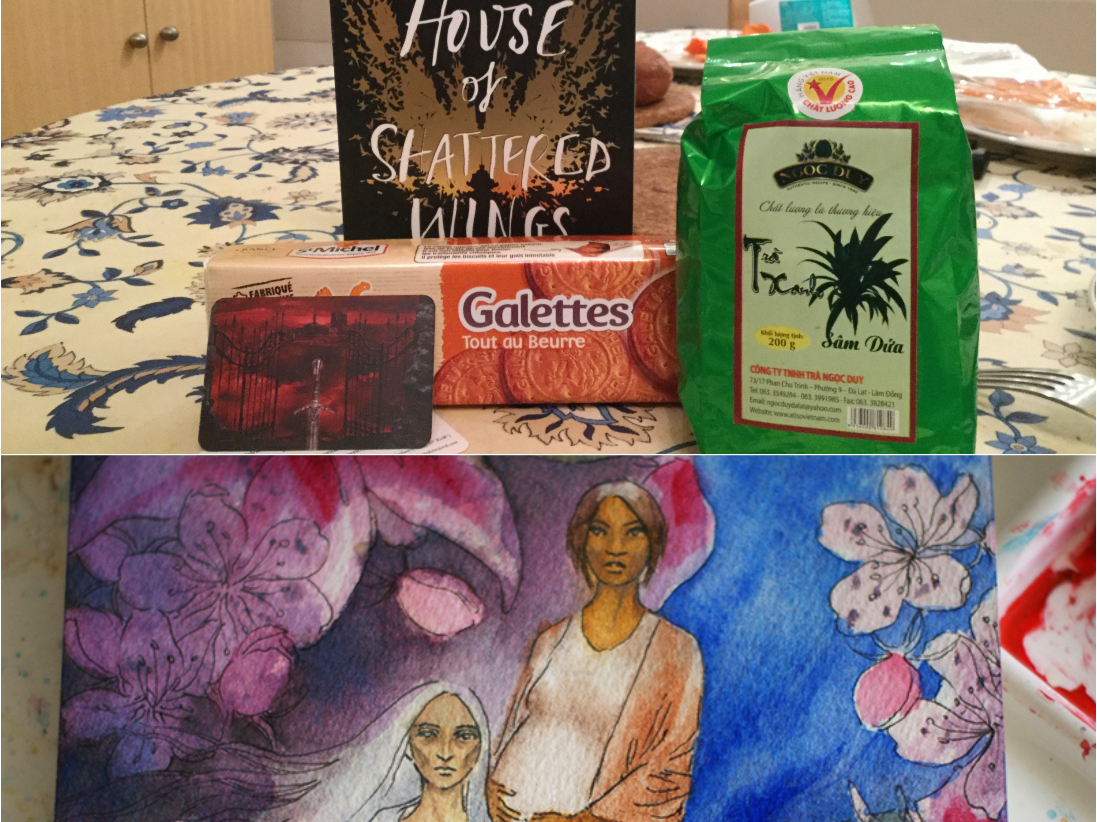And now for something completely different: two friends of mine, Djibril al-Ayad and Fabio Fernandes, are having a peerbackers project to raise the money for We See a Different Frontier, an anthology of SF focused on the developing world. I’ve agreed to ask them a few questions to help them promote their project:
1. Can you introduce yourselves?
*Djibril al-Ayad*: Sure. I’m Djibril, and I edit The Future Fire, a magazine of social-political speculative fiction that has been publishing free online issues for about seven years now. We’ve focused in the past on feminist and queer issues, as well as environmental and colonial concerns. I have a soft spot for cyberpunk and dystopian settings, which are ripe for deep political storylines, but also like to experiment with surreal, magical realist and slipstream work.
*Fábio Fernandes:* I’m a science fiction author living in Brazil. I’m a professor of Creative Writing for Games and of Digital Culture scholar and translator for an university in São Paulo, and in my spare time I work as a translator (I did the Brazilian Portuguese versions of Neuromancer, Boneshaker and The Steampunk Bible, among many others). I’m edited a bilingual journal in Brazil a few years ago, and won two Argos Awards for Best Fiction (Brazil). I’m still doing some writing and editing in Portuguese, but since 2009 I’ve been doing most of my work in English.
2. Can you talk a bit about the project and its inception?
This project arises indirectly from the fact that TFF took a one-year hiatus last year, in part due to editor fatigue, and when we came back we felt we needed a bit of fresh blood to bring us back to form. Fábio was one of several people who responded to our call for proposals for themed and co-edited special issues, and his suggestion caught our eye right away: an anthology of colonialism-themed stories celebrating the viewpoints of people from developing countries or backgrounds. (We selected only two of the many proposals, the other being the Outlaw Bodies, currently reading submissions.)
We plan for the We See a Different Frontier anthology to be a professional rate-paying venue, which is why we’re asking people to help fund this through the Peerbackers venture. If we reach our target of $3000 we’ll probably be able to offer at least $0.05 per word and have a good spread of stories. (Obviously we hope we’ll exceed that and be able to pay an even more realistic “professional” rate for these stories.)
This anthology will publish colonialism-themed stories in any of the subgenres of speculative fiction: scif, fantasy, horror, surreal, weird, slipstream etc. We’re looking for stories from perspectives outside of the usual white, anglophone, Western, middle-class, straight/cis/male literature than dominates the genres. Although we’re not planning to place any restriction on who can submit stories, we are determined to avoid stories that contain cultural appropriation, orientalism and the like, so make sure your voices are authentic and come from a place of knowledge rather than wishful thinking.
3. The anthology is strongly focused on the experience of people from developing countries–a perspective that I find fascinating because it’s one that we don’t much see in the field (which has a plethora of stories written from what I’d call an “outsider” point of view, from people in developed countries writing about developing countries). What do you think are the main differences between this perspective and SF from developed countries?
*Fabio*: The outsider has always been the “industry standard”, so to speak. This, in itself, is not necessarily a problem – science fiction is a genre that serves pretty well to self-examination and criticism, hence the New Wave and the Cyberpunk Movement, for example. But whenever I want to see what’s lurking around the corner, it’s easier to find stories that take place in the other side of the galaxy than in a country of the Third World written by a citizen of said country. Take the case of Brazil: when I was growing up, all I could read in terms of SF was Asimov, Bradbury, Clarke, Heinlein (later, Frank Herbert, William Gibson) and a handful of Brazilian authors published by small presses. I became a member of an SF club which exchanged information with other countries (Argentina, China, Japan, UK, USA), but we mostly relied on Locus Magazine and Ansible for information; they served as information hubs mostly. We got more info from them than from Argentina; that still remains the case, sadly – but we must stress out that Brazil is the only Portuguese language country in the subcontinent, entirely surrounded by Spanish-speaking countries (11 only in South America – I’m not counting Central America or Mexico).
Still about Brazil, or should I say “Brasyl”? Ian McDonald’s novel about my country is pretty good and very well-written (one couldn’t expect less from McDonald), but I couldn’t shrug off the impression that he somehow failed to capture the essence of Brazil, the cultural and subcultural undercurrents that permeate our daily life. For instance, in a scene early in the novel, he describes a capoeira fight between a blonde woman and an African Brazilian man, and he describes all the racial tension between them – but he does it with an Anglo’s eyes! To a Brazilian, the tension is spread thinner and subtler than it was described there. It was something many of my Brazilian friends who read the novel didn’t even care about, but I’m sure that a Brazilian writer would have done it differently. This sort of thing, however, is apparently unsolvable: McDonald did his very best and the novel is good. I wrote a couple of stories about India and I think they were well researched, but I’m sure I will never write them as an Indian author. So, it is just a difference in perspective. It’s not necessarily good or bad, just different. And I want to see more of this different perspectives.
4. One of the things that I find fascinating about SF is its strong roots in a colonial paradigm (it’s not for nothing that we talk about space colonisation, or that stories about the settlement of other planets bear strong parallels to the Conquest of the West). Obviously this is a subject that you mean to tackle in this anthology! However, if I may take it further… How do you think those original tropes affect SF today–and how do you think we should go about producing genre that doesn’t unthinkingly perpetuate those problematic tropes?
*Fabio:* I had a paper to present in this year’s ICFA, and sadly I could not attend it – but it was just about that: how Firefly dealt with the conquest of space drawing a simple parallel with the Conquest of the USA Wild West. This paper wasn’t accepted for a book on Joss Whedon’s works, and I wonder why – I am a fan of Firefly, but I happen to disagree with a few things I wanted to see and I didn’t. I just thought there wasn’t enough diversity in Firefly! Is that evil? Not at all, it’s just a tiresome thing – and I believe it is one of the reasons why the show unfortunately didn’t last.
I loved Tobias Buckell’s Xenowealth series, and I think he shifted slowly the colonial paradigm by changing the ethnicity of the colonists in the first place. This is a nice first step, and Buckell’s Caribbean upbringing helped him a lot to see things differently from the original SFnal tropes. Your own Obsidian and Blood trilogy deal with a culture that shifts from the old fantasy stories about pre-columbian peoples and treat the Aztecs as an extremely intelligent people, that is, as every people on the world should be treated historically, socially, and narratively. I think the best we can do is not underestimate the Other.
*Djibril:* I think the best and maybe only way for a writer to avoid unthinkingly perpetuating problematic tropes is to think–think hard about everything you say and write. That sounds like a platitute, but I seriously believe that we can learn a lot by being self-conscious. We can learn from analysing our own mistakes (and yes, being criticised for them, for all it can hurt). Of course the best way to avoid Western colonial attitudes in science fiction is to read and publish SF written by someone with a different perspective, with a different attitude, but even then there’s the danger that we internalize prejudice and the Western tropes have permeated pretty much the whole world, so thinking about what you’re writing and why helps even there.
But the most important thing, and what we’re trying to achieve with this anthology (and what collections like So Long Been Dreaming, Dark Matter, World SF, Walking the Clouds etc. have done before us) is actively to pay attention to speculative fiction being written from outside the dominant paradigm, to “give voice to the voiceless” as Salman Rushdie puts it (although I don’t want to suggest that such writers are voiceless, certainly not on this blog!). There’s a lot of great spec-fic out there, and as Fábio said in his response to our call, only reading the stuff by western white anglo straight cis male authors just isn’t good enough.
Thank you, Djibril and Fabio, for dropping by! And, if you feel like donating money to make this possible, go over to the Peerbackers website over here. I’m very much looking forward to this anthology.

![]() Subscribe to the Podcast here! Or on iTunes! Or click play below:
Subscribe to the Podcast here! Or on iTunes! Or click play below:





